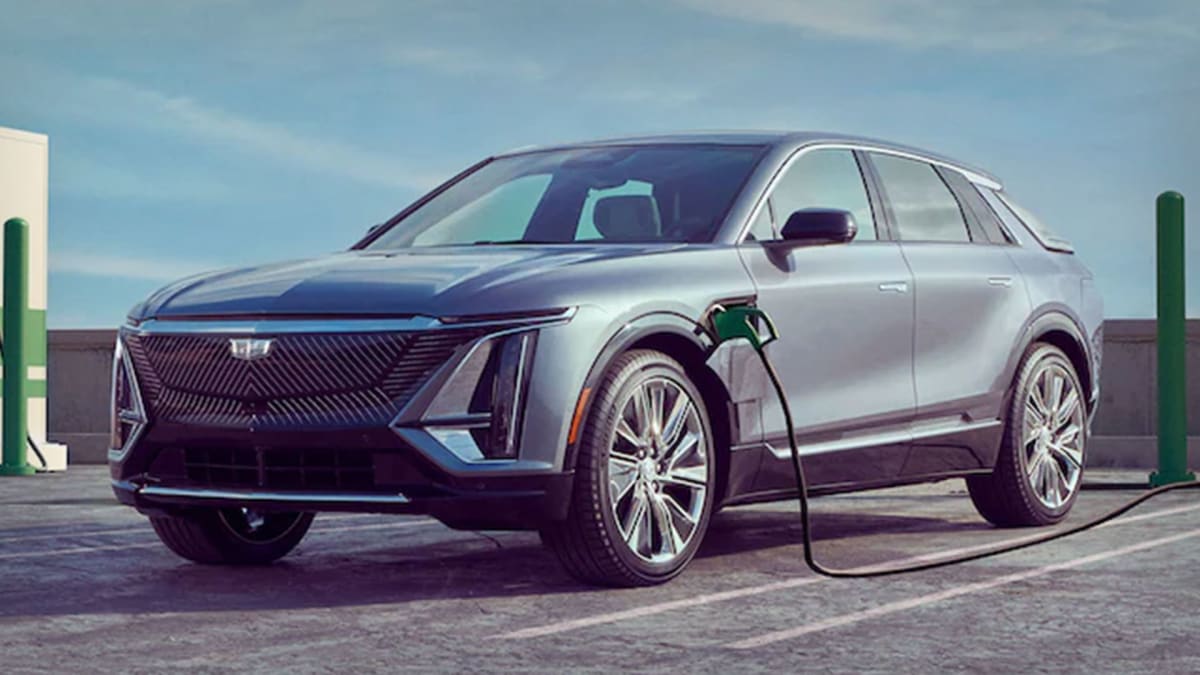
It is rare to see General Motors and Tesla on the same side.
Usually the two car manufacturers are opponents and rivals.
One of the sticking points remains the fact that President Joe Biden gave General Motors (GM) praise that should have gone to Elon Musk's company.
Biden credits GM with being the engine that pushed the auto sector to go electric. The Democratic president had repeatedly claimed that the Detroit giant, under Chief Executive Mary Barra, leads the electric-vehicle revolution in the U.S.
"In the auto industry, Detroit is leading the world in electric vehicles. You know how critical it is?" Biden said in November 2021.
"Mary [Barra], I remember talking to you way back in January about the need for America to lead in electric vehicles. I can remember your dramatic announcement that by 2035, GM would be 100% electric. You changed the whole story, Mary. You did, Mary. You electrified the entire automotive industry. I’m serious. You led, and it matters.”
What Is an SUV?
The problem is that the credit goes to Tesla (TSLA), which Musk and fans of the group did not hesitate to point out at the time. Tesla is by far the world leader in electric vehicles in terms of sales and production volumes. GM is very, very far behind.
GM's prominent place in the White House's automotive plans and the fact that Tesla has been snubbed by the current administration from the start have cemented a form of enmity between the two carmakers.
But there are subjects that bring even the worst enemies together and that is what has just happened. GM and Tesla both find themselves pressuring the government to change rules regarding electric vehicles to benefit from federal tax credits.
The two rivals are fighting the qualification brought to the SUV by the Internal Revenue Service (IRS). The tax authorities seem to believe that the Cadillac Lyriq, the very first electric vehicle produced by Cadillac, GM's premium brand, is not an SUV. However, other federal agencies such as the Environmental Protection Agency (EPA) qualify the Lyriq as an SUV.
This definition is important because by excluding the Lyriq from the SUV category the IRS automatically eliminate the model from vehicles eligible for the $7,500 federal tax credit.
To qualify for the federal tax credit, cars, sedans and wagons must have a retail price of no more than $55,000. SUVs, on the other hand, with a retail price of up to $80,000 are entitled to the tax credit of $7,500. The base price of the Cadillac Lyriq is $62,500.
As a result, GM therefore wants the IRS to reconsider its definition of SUV.
"In determining how vehicles should be classified, Treasury should leverage existing U.S. government definitions and practices, using criteria and processes similar to that used by the Environmental Protection Agency (EPA) and the Department of Energy (DOE)," a spokesperson told TheStreet. "This drives consistency across existing federal policy and clarity for consumers, particularly when utilizing relevant EPA and DOE resources like fueleconomy.gov."
"We are addressing these concerns with Treasury and hope that forthcoming guidance on vehicle classifications will provide the needed clarity to consumers and dealers, as well as regulators and manufacturers."
The request is similar to that made by Tesla, whose Model Y variants are not considered SUVs.
Force the Hand of the Government
The way is certainly different because Tesla and Musk, with the support of their fans, are carrying out a public campaign. GM has opted for the old and traditional method of pushing for changes behind the scenes.
But in the end the objective is the same: to force the hand of the government.
The Treasury did not immediately respond to a request for comment.
But a Treasury spokesperson told Reuters that for its classifications the agency used standards "which are pre-existing -- and longstanding -- EPA regulations that manufacturers are very familiar with. These standards offer clear criteria for delineating between cars and SUVs."
The stakes are high for both auto companies. The coming recession could impact demand for electric vehicles as consumers will become more cautious and think twice before buying a new vehicle. Auto loans are also a bit more expensive due to the Federal Reserve raising interest rates.
GM and Tesla can console themselves because, for the moment, the IRS indicated at the end of December to postpone until March the publication of guidance on the origin of the vehicle's batteries. This means that most electric vehicles can temporarily benefit from the tax credit until the rules on batteries are issued.
The IRS can also adjust its qualification because it's asking other federal agencies and the general public to comment on its guidelines: "The IRS is soliciting comments concerning qualified plug-in electric vehicle credit and Revenue Procedure 2022-42," the federal agency wrote on Dec. 30.
Comments are accepted until Feb. 28.







